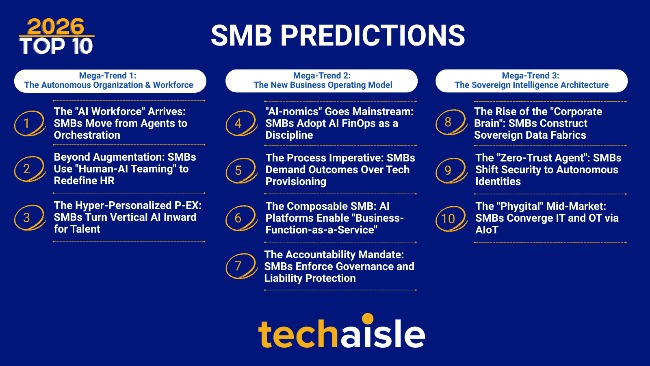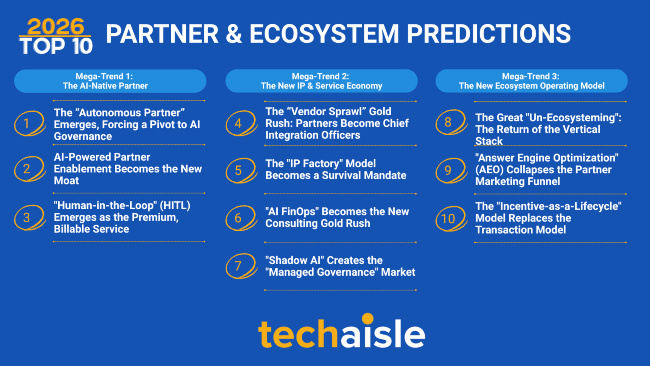The technology industry has spent the better part of two years fixated on the generative capabilities of artificial intelligence—its ability to create text, images, and code. However, at Techaisle, our data and conversations with CIOs suggest a critical plateau in enterprise adoption. Organizations are currently stuck in a phase of pilot purgatory, not because the models lack creativity, but because they lack agency. In fact, specific to SMBs and Midmarket firms, 34% have been experimenting for longer than six months. The ability to converse is valuable; the ability to act is transformative.
At this week's re:Invent, AWS signaled the definitive end of the chatbot era and the beginning of the Agentic Era. This is not merely a feature update or a rebranding of existing tools. It is a fundamental re-architecture of the enterprise technology stack that moves us from static, deterministic software to probabilistic, autonomous systems. For the C-suite, this transition demands a complete reimagining of compute economics, governance frameworks, and workforce planning.

The Physics and Economics of "Thought"
To understand the magnitude of this shift, one must look at the underlying physics of agentic workflows. The transition from a chatbot to an agent fundamentally alters the economic profile of cloud computing. In a traditional generative AI interaction, a user provides a prompt, and the model returns a single answer. It is a linear transaction.
An agentic workflow is exponentially more compute-intensive. An agent does not just answer; it reasons. It breaks a high-level goal into a plan, executes a tool call, perhaps encounters an error, updates its memory, replans, and attempts the task again. This is an inference loop. The industry is moving from a model of linear compute consumption to one of exponential inference demand, where the cost of the thought process—the reasoning time required to navigate a problem—becomes a primary driver of IT spend.
This economic reality explains why AWS is aggressively pushing its custom silicon strategy, as evidenced by the launch of Trainium 3 and the preview of Trainium 4.















